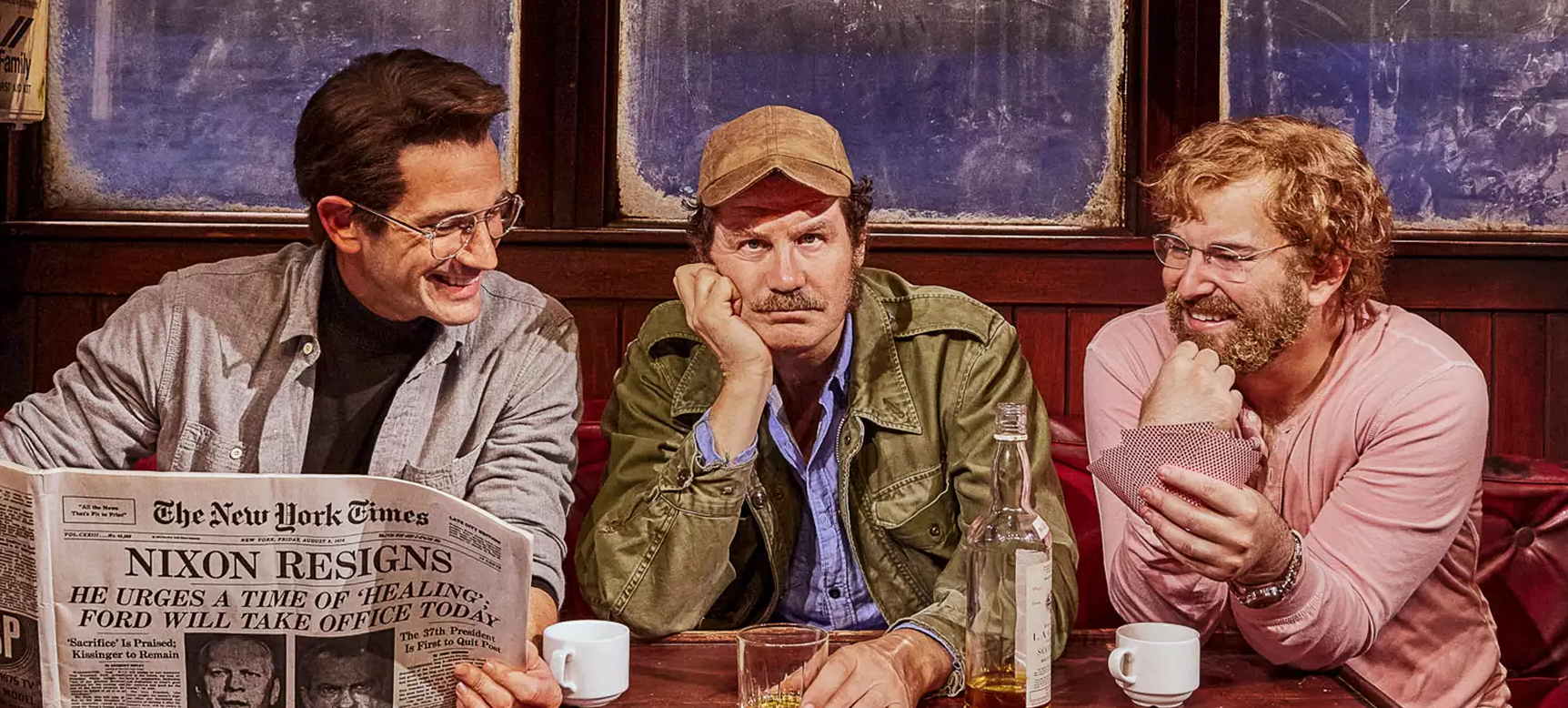THE SHARK IS BROKEN
by Ian Shaw and Joseph Nixon
Directed by Guy Masterson
Starring Ian Shaw, Alex Brightman and Colin Donnell
John Golden Theatre
Official Website
Reviewed by David Spencer
The Shark is Broken isn’t much of a play, not if you’re looking for story or deep meaning. And it isn’t particularly revelatory if you’re even casually familiar with the documented and anecdotal history about the making of Steven Spielberg’s 1975 film, Jaws (from the bestselling novel by Peter Benchley). You won’t be seeing The Unknown Story Behind the Story dramatized.
Rather, what you’ll see is a dramatization of Mike Nichols’ philosophy on casting—which basically asserts that if you cast the right actors and thereafter leave them alone in a room, the dynamic that develops among them should in some wise replicate the dynamic of the film or play they’ll be acting in.
Jaws, filmed on location on the Atlantic Ocran, in and around Martha’s Vineyard, infamous even while it was being made for production and technical delays and running over budget, provided a prime example of that as gruff, hard-drinking British actor Robert Shaw (veteran salty seaman Quint), Richard Dreyfuss (marine biologist Hooper) and Roy Scheider (sheriff Brody) spent months cooped up together in the small cabin of the Orca, the actual ship that doubled as a set, upon which they shark hunted in the film, but in real-life sat waiting for interior and exterior set-ups to be ready.
A sense of Pirandello insinuates if you consider the play’s very existence too deeply, because you wonder how much Nichols’ theory extends into Jaws’ casting, with the contentious factions represented by Ian Shaw (who co-wrote the script with Joseph Nixon) playing his own father, and Alex Brightman playing Dreyfuss…and Colin Donnell as peacemaker Scheider. (Shaw created his role in the original West End production; the other two are native Americans playing their roles for the first time.)
Stepping back from all that, the play is best anticipated—and seen—as a lighthearted dialectic on the nature of art vs commercialism and being a working actor vs being a star. Of the trio, Shaw and Brightman (Brightman especially) have the best time of it, because their real-life counterparts are so famously idiosyncratic that their energies and tics can be persuasively replicated with near-instant recognizability. Mr. Donnell, who is fine, lacks that advantage because Scheider was so cleanly straightforward an actor that suggesting his persona requires understatement. In his case, the audience makes a pact with that incongruity early on, after which he easily holds his own: the moderator can afford to be moderately suggested. Direction by Guy Masterson is likewise clean and unobtrusive; exactly what’s called for.
As Jaws was a great Summer movie, this play about the film is…well, not great, but a very suitable Summer diversion. If you like what you’ve read about it here, you’ll like what you see at the Golden.
